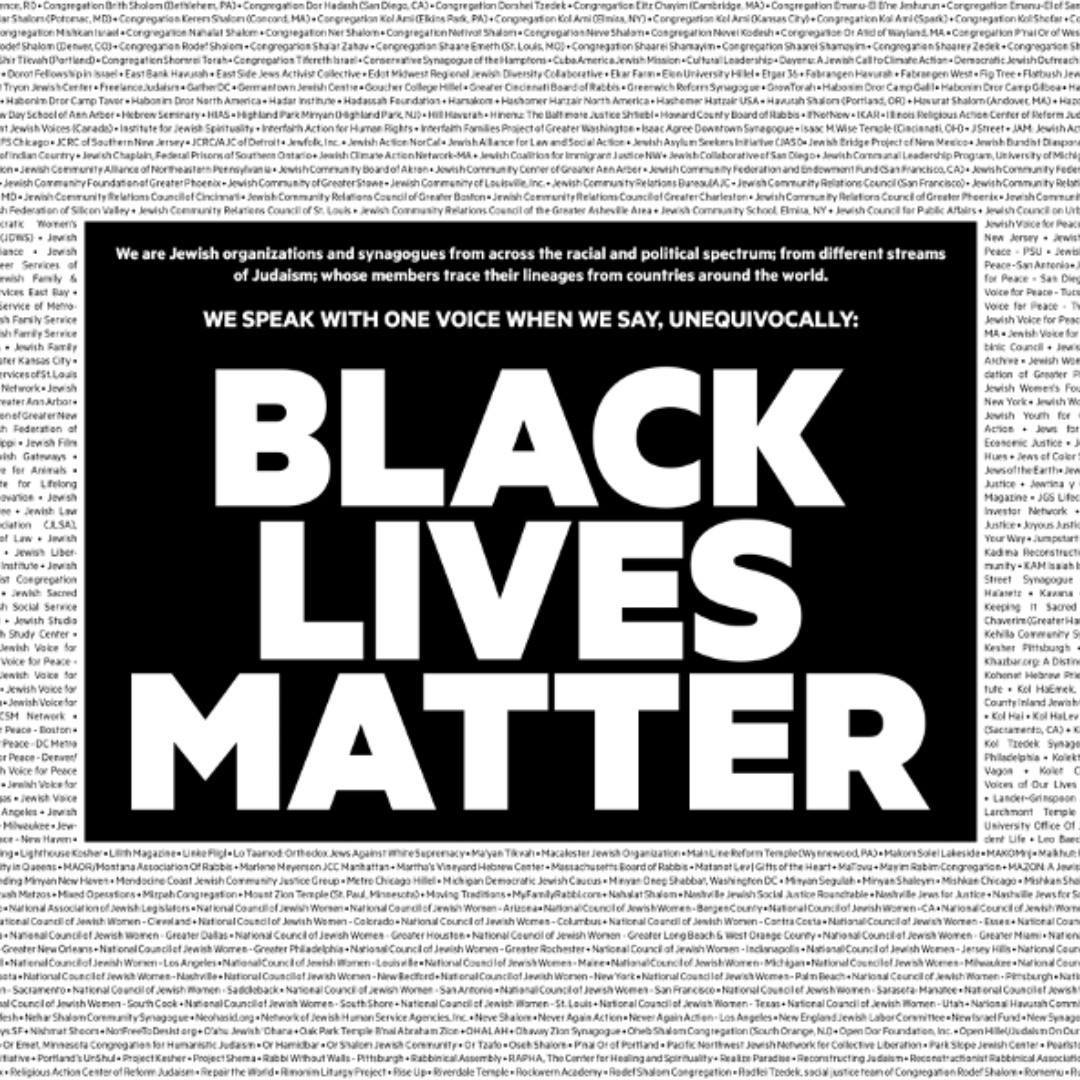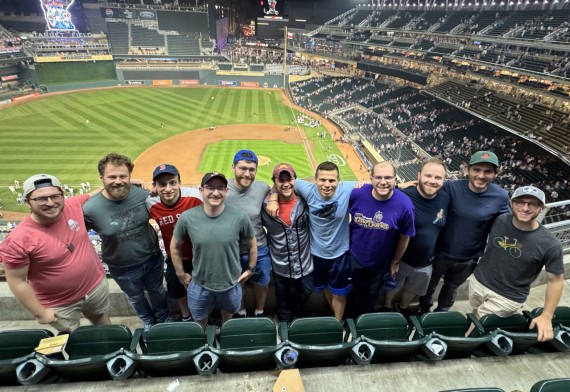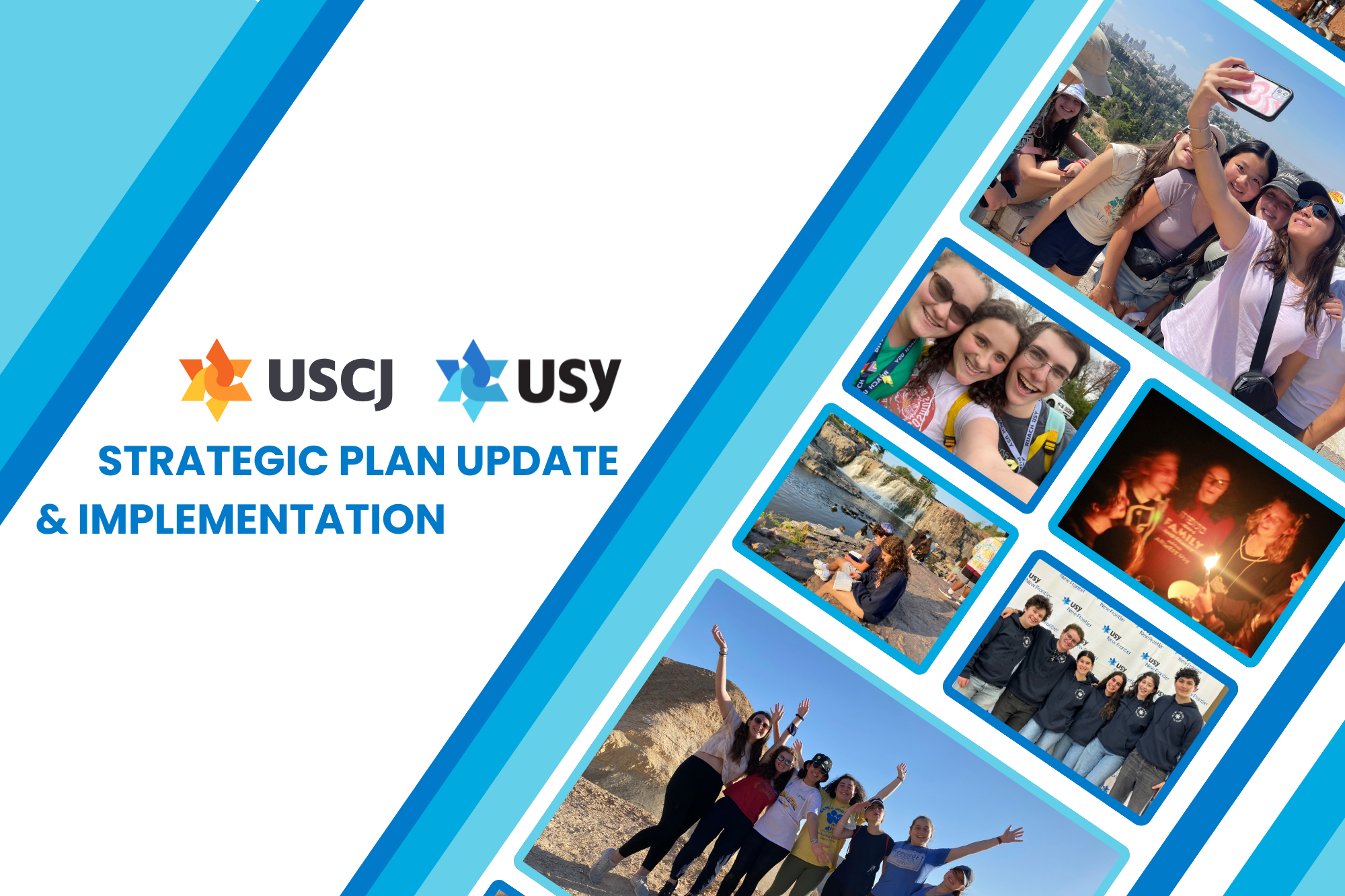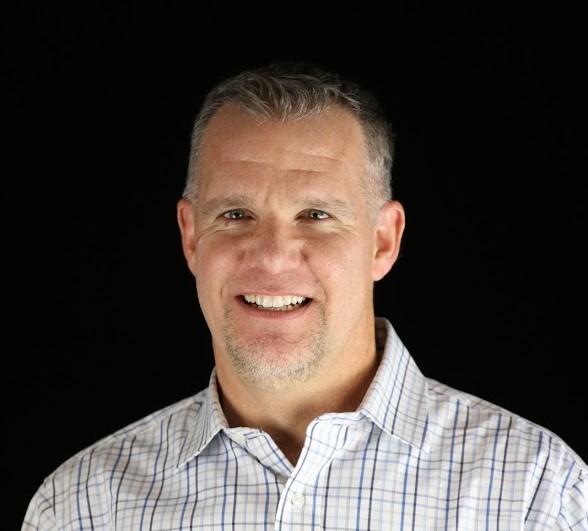
On Friday, August 28, 2020, The New York Times published a letter signed by over 600 Jewish organizations, including USCJ, expressing Black Lives Matter. The process used to sign on to this letter was consistent with current policy regarding issuing statements, and was reviewed by Rabbi Jacob Blumenthal along with Leslie Lichter, USCJ’s COO, and Ned Gladstein, USCJ’s president.
The letter reflects the mission and values of USCJ, and we are therefore pleased it has received a good deal of attention. The following additional information/ context might also prove helpful:
1. We believe that this letter represents the mainstream point of view in the Jewish community. Among many others, both the Jewish Council for Public Affairs (JCPA), which represents Jewish Community Relations Councils across the US, and the Anti-Defamation League (ADL) signed on, as well as hundreds of synagogues, Federations, and other organizations.
2. #BlackLivesMatter is a broad-based idea linked to a wide range of institutions and leaders initiated by the Black community in its struggle to seek justice and to eliminate systemic racism. There is no one organization responsible for its thinking. Much as the Jewish community is extremely diverse (even our Conservative movement is quite diverse!), that is also the case in the Black community.
3. Leaders in the Black community have spoken out forcefully against violence and antisemitism, and have been important allies to our own community in the face of the increase in antisemitism (including leaders who do not agree on all of our community’s positions).
4. #BlackLivesMatter is sometimes erroneously linked to the Movement for Black Lives (M4BL) organization, and concerns have been raised about its links to BDS and anti-Israel sentiment. I strongly urge you to read this analysis by the Jewish Council for Public Affairs, which pushes back on those initial assumptions that were made 4 years ago and also brings it up to date based on their draft 2020 platform statement to be released soon. We agree with the JCPA’s conclusion: “To counter antisemitism and to live out our Jewish values of equity and justice for all, that the Jewish community should not abandon the largest movement for racial justice in decades because of fear of a position, even one as objectionable as that included in the M4BL platform in 2016, taken by a small faction also participating in that fight.”
5. It is very important to note that BLM is a movement by and for Black Americans, including many members of our Jewish community. There may be times when we need to take a step back from the Jewish community’s immediate concerns and, when we see fatal results of prejudice and systemic racism, give priority to those efforts. As we form closer alliances, we will also find opportunities to talk about our own concerns.
6. Many of our constituents have expressed gratitude for taking this position as allies of BLM. From those comments I note especially that our younger generation is passionate about this struggle, and many times they can be our teachers on issues in which unfortunately, a generation after the civil rights movement, we have not made sufficient progress. In fact, USCJ’s Board of Directors will have a chance to have a multi-generational, multi-perspective conversation about the issue of racial justice at our board meeting on September 13.
7. We are proud that USYers are in the midst of an “18 Day Learning Challenge” to educate themselves further about racial injustice in America. In addition, USYers will engage in challenging conversations with peers surrounding these issues. We also invite our synagogue leaders to participate in a voluntary cohort of congregations engaged in our upcoming Kol Tzedek racial justice initiative.
Part of our goal as we Seek Meaning Together at USCJ, is to improve a very flawed world, and this statement expresses our desire to be allies in the struggle to eliminate racism, seek justice, and affirm that #BlackLivesMatter. Real change is never easy, demands that we take risks, and is rarely comfortable. Particularly in the month of Elul, as we approach Rosh Hashanah and Yom Kippur, Jewish tradition requires that we look at both ourselves and our society — own our challenges, biases, and imperfections — and act to correct them.








